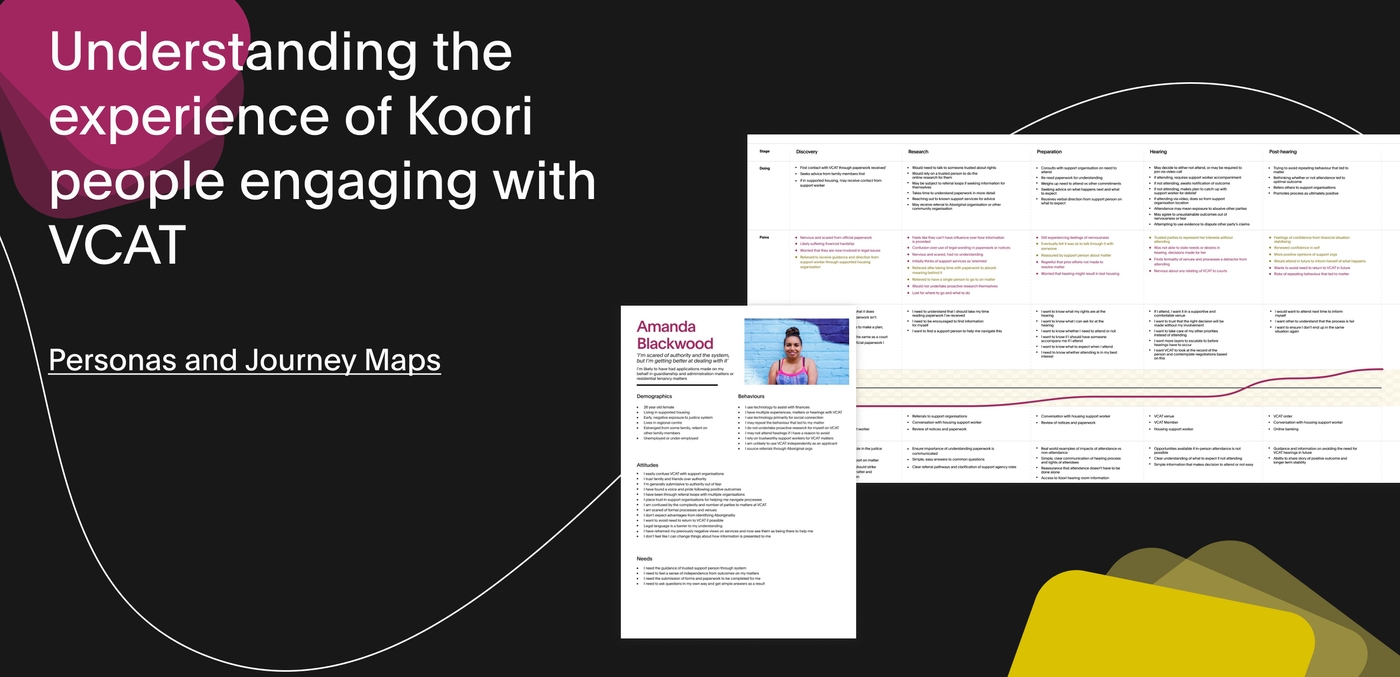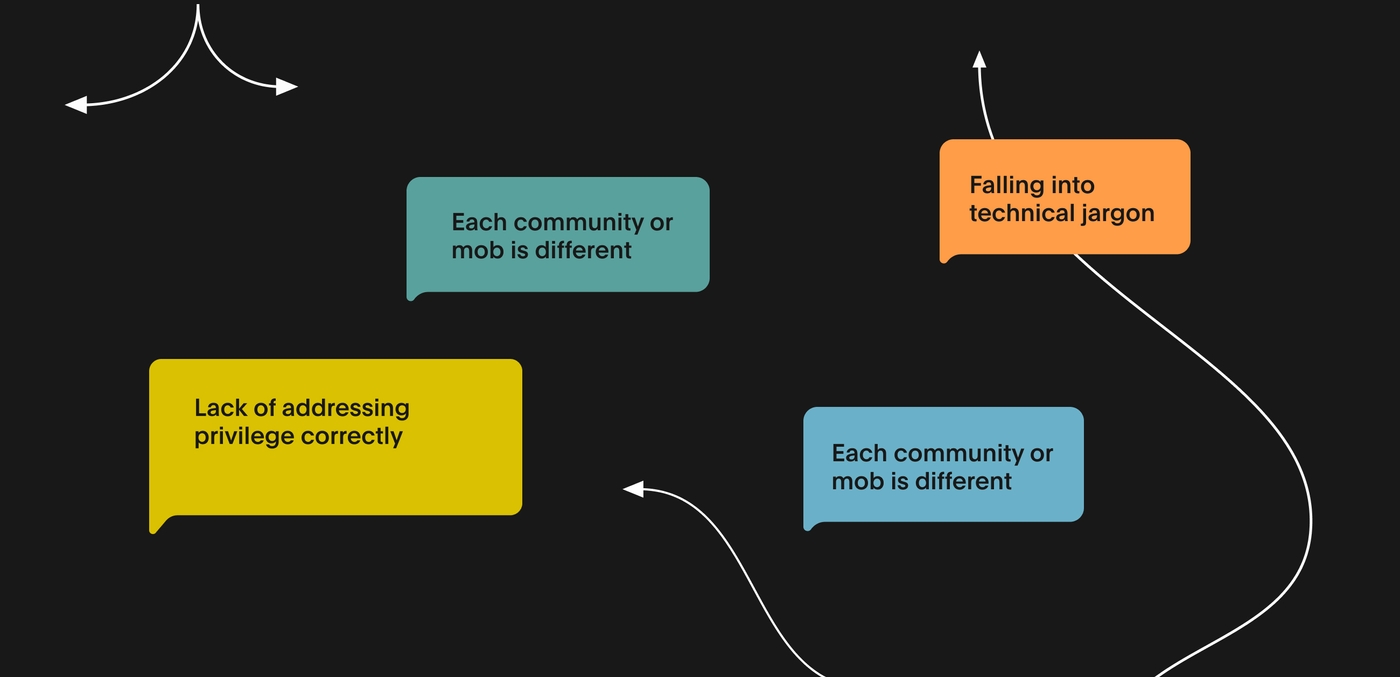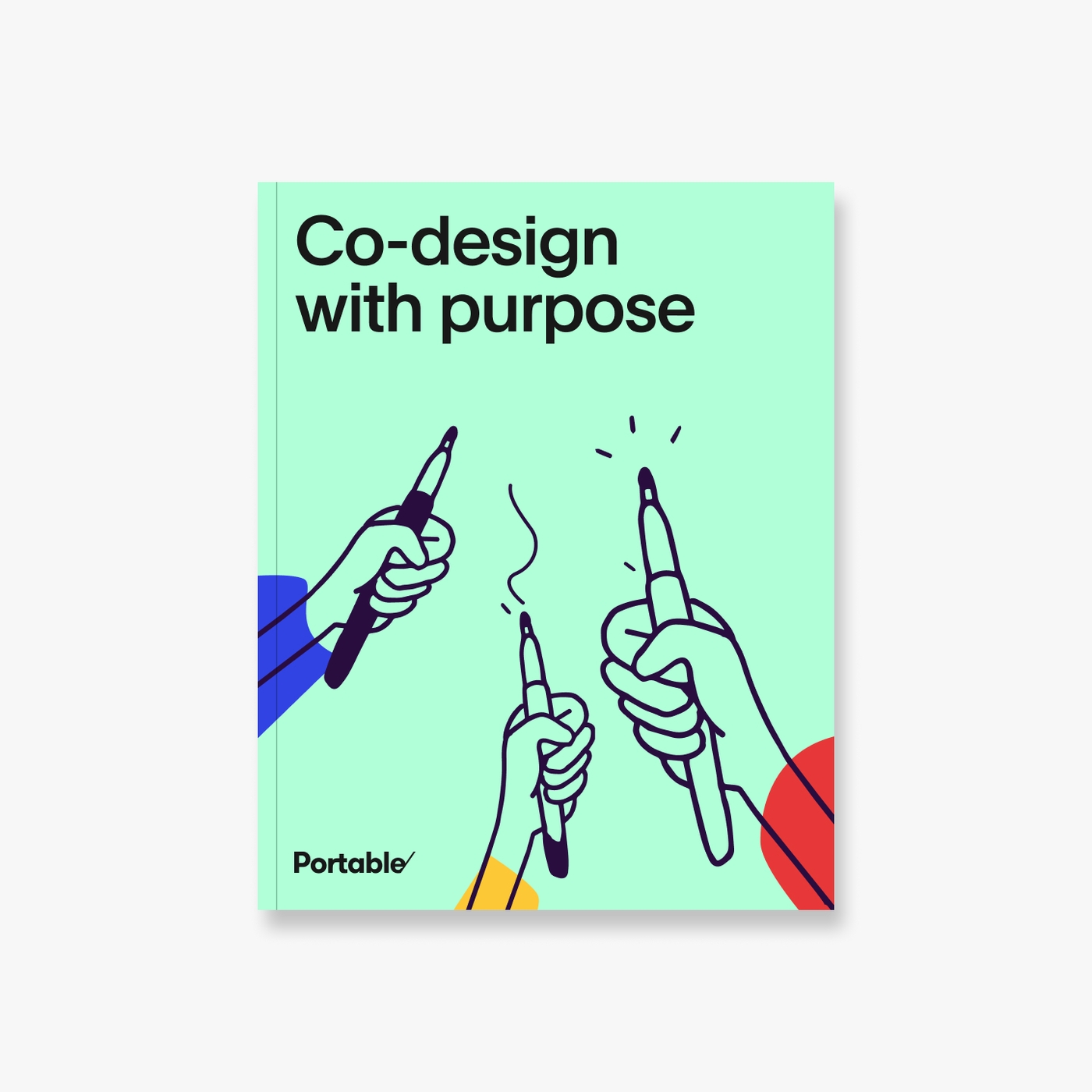
VCAT chose to partner with Portable due to our extensive experience working to understand the unique experiences of people trying to access justice through legal bodies.
For this engagement, we proposed an approach that would ensure the work was Indigenous-led, conforming to the Australian Indigenous Design Charter. Our approach embraced a participatory approach working with VCAT’s Koori Support Team members as partners in the research.
The Challenge
For VCAT, previous research and anecdotal experience had highlighted that Koori people face greater barriers to full participation at VCAT compared to other community groups, arising from its current service delivery model.
Key challenges include:
- a lack of support when trying to understand the processes
- a lack of clarity over what is required and expected at each step in the process
- lack of cultural safety and support throughout the experience.
For Koori people, this was resulting in a lower likelihood of engaging with VCAT as a proactive party to resolve disputes, and a higher likelihood of engaging as a reactive respondent to cases brought against them. This poor experience was also leading to lower attendance rates for Koori people at VCAT, and a perception that there isn’t any value to be gained from engaging with the tribunal.
Our Approach
Cultivating a trusted and open partnership with VCAT’s Koori support team was critical to this project’s success. As the COVID-19 pandemic coincided with the kick-off phase, we needed to rapidly move our design research techniques and tools into online settings.
At each step in the process, we worked with the VCAT Koori support team to establish culturally safe settings for participants, and to engage them as research partners. Whether it was in planning the activities, facilitating workshops, conducting interviews, or collaborating on synthesis, the VCAT Koori support team was there to advise, share their views and contribute to the eventual insights and recommendations we produced.
Exploration and discovery through workshops and interviews
We started our research by convening a group of subject matter experts who engage with Koori applicants and respondents at VCAT. These experts came from a number of different organisations offering services to Aboriginal Victorians in legal, housing and family matters.We hosted a group conversation focused on two themes: enablers of Koori people at VCAT, and barriers for Koori people at VCAT. These conversations were mapped in real-time by our design strategists in our online whiteboard environment and provided the team with some topics for the interview phase with community members.
We then moved into our interview phase, conducting a series of 12 interviews with Koori community members in partnership with VCAT’s Koori Support team. Our VCAT Koori Support team partners opened each conversation with an acknowledgement of country and a culturally safe description of what we were there to learn and why we were talking to the participant before inviting our design strategists into the virtual space to conduct the interview. Participants were given reassurance that the Portable team member could be asked to leave at any time, and the expectation was set that the VCAT Koori Support team member would intervene if any point of the conversation became culturally unsafe.

Collaborative sense-making and insight formulation
From the rich body of research data we’d collected, our team conducted an initial round of online synthesis using the digitised workshop and interview notes, sorting the research into early themes and groupings.
We then invited our VCAT Koori Support team partners to join a collaborative, online synthesis session to review the themes and groupings that had emerged, and to begin drafting early insight statements with us.
Collaborative synthesis is a powerful tool, as it provides an opportunity for stakeholders to see the emerging story of the research findings taking shape, and it leads to strong custodianship of the insights and recommendations to be embedded and sustained beyond the life of the project.
We then synthesised our insights collaboratively with this team before creating user personas, journey maps and a series of actionable recommendations for the new website and for the way in which services are delivered by VCAT.
Personas and journey maps
To complement the final report of findings, insights and recommendations, we worked on crafting three behavioural personas that were representative of the different groups of attitudes, behaviours and needs we’d encountered in our research. These personas formed the basis of journey maps that articulated the experience of the personas in different scenarios when interacting with VCAT.
These artefacts provide a useful reference point and summary of the stories of lived experience we’d collected and analysed, and became helpful resources for decision makers at VCAT when thinking about various steps in the process and modes of interaction with Koori people.
Final report and presentations
Our findings, insights and recommendations were assembled into a screen-friendly, comprehensive final report, with the executive summary forming the basis for a tailored, summarised version for presentations.
In our initial showcase of findings, the impact of our insights and recommendations resonated with the VCAT decision-makers, and we were asked to attend an additional two presentation sessions with advisory groups within VCAT and in the broader Court Services Victoria group of organisations.
Next Stage
A monitoring and evaluation framework
One of our core recommendations contained in the final report was for VCAT to demonstrate a commitment to progress through monitoring and evaluation. Specifically, we recommended that VCAT should build a monitoring and evaluation framework to generate progress reports against the recommendations we provided, and then use this framework to set benchmarks, identify emerging issues and opportunities, track demand for support services and monitor VCAT’s capacity to deliver.
In early 2021, Portable again partnered with VCAT to co-create this framework, which has since been introduced and embraced by the VCAT Koori Support Team in its efforts to continually monitor progress against its objectives for improving the experience of Koori people when engaging with the tribunal.
Project Outcomes
This project delivered impact at a number of levels within Court Services Victoria, and led to a commitment by VCAT to monitor and evaluate progress based on our recommendations.
As a result of our collaborative, partnership-driven approach, the Koori Support Team staff were able to learn about the experiences of Koori people at the tribunal first-hand. Through our collaboration in synthesising the insights from this research, this team then built a sense of ownership over the emerging story, allowing it to have a life of its own beyond the end of our project. The team were invested in the recommendations, and passionate about delivering on them.
The work was received with interest and openness in broader forums with key decision-makers at VCAT and within the broader Court Services Victoria body of members, especially with those looking to deliver improvements aligned to phase 4 of the Victorian Aboriginal Justice Agreement.
Testimonials and Reflections
“We’ve very much enjoyed our working relationship with you all in 2020 – one of the few highlights of 2020 looking back - and the recent workshop makes us very excited about the next project in the first half of 2021.”
– Wendy Harris, Manager, Koori Engagement
“Whenever someone asks me about the most important or impactful project I’ve worked on at Portable, I always come back to this critical work we did in partnership with VCAT. At every level, from the way we worked in partnership with the VCAT Koori Support team, to the trusting conversations we had with people who were being left behind by the system, to the ongoing impact resulting from our insights and recommendations, it was one of the most meaningful pieces of work in my career to date.”
– Adam Corcoran, Design Strategy Lead
Project Team
- Adam Corcoran, Senior Design Strategist
- Joanne Osbourne-Taylor, Lead Design Strategist
- Tom Morris, Senior Producer
- Sarah Kaur, Head of Account Management
- Cristiano Fantasia, Senior Experience Designer
- Luke Thomas, Legal Designer
Download our guide to co-design with purpose
